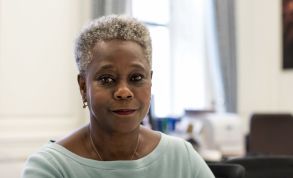Furious reaction to proposed pay rises
In evidence to the pay review bodies for doctors and dentists, and staff on Agenda for Change (AFC) contracts, the Department of Health and Social Care said the 2021/22 health budget had been set with the assumption that the headline pay award would be 1%. Any more would require funds to be re-prioritised with Covid-19 putting a huge strain on finances in the NHS and across the public sector.
Ministers pointed out pay will be frozen in the rest of the public sector, and that inflation (as measured by the consumer price index) has been low over the last year. In December it stood at 0.6%, but the Office for Budget Responsibility forecast it could rise to 1.5% this year and 1.8% in 2022.
The impact of headline changes in NHS pay is not simple, and a 1% rise cannot be seen in isolation. Through pay progression, many staff will move to higher points on the pay scale – there are now fewer points on the scale, with bigger jumps in salary between the points.
Plus, as the Department’s evidence to the NHS pay review body states, the NHS pay bill will rise by 0.7% in 2021/22 as a result of the three-year AFC deal. Though the deal ends in March, it includes an agreement for transitional pay points for bands 5, 6 and 7 to be removed in 2021/22. This will increase the overall pay bill by around 0.7% as staff currently at the transitional pay points will move directly to the top of their band on 1 April. Affected staff in band 5 will receive a 11.67% increase, and band 6 a 12.17% rise. Those in band 7 will get 6.66% more.
The government also made an additional commitment to staff on some pay points in bands 8 and 9 to ensure their pay does not drop below what they would have expected under the previous arrangements. A decision on what will happen to the pay of these staff will be taken as part of the 2021/22 pay round, but in the meantime they will continue to be paid the amounts they are currently receiving. The Department said this would be an additional cost on top of the 0.7% for bands 5, 6 and 7.
However, the unions are furious. Royal College of Nursing chief executive and general secretary Donna Kinnair (pictured) said the government’s recommendations were ‘pitiful and bitterly disappointing’, and nursing staff deserved a 12.5% rise.
‘If the pay review body accepts the government view, a pay award as poor as this would amount to only an extra £3.50 per week take-home pay for an experienced nurse. Nobody would think that is fair in the middle of a pandemic and it will do nothing to prevent the exodus from nursing.
‘Nursing staff would feel they are being punished and made to pay for the cost of the pandemic. It is a political decision to underfund and undervalue nursing staff,’ Dame Donna added.
Unite, which has 100,000 NHS members, said the government’s recommendation was ‘callous and an enormous slap in the face’. It would campaign for a rise of £3,000 a year or 15%, whichever is greater. It added it would consider all its options, including industrial action, and will liaise with the other health unions on next steps.
Unison, the largest health union, said the 1% recommendation was ‘the worst kind of insult the government could give health workers who’ve given their absolute everything over the past year’. It has called for a pay rise of at least £2,000.
NHS Providers said the recommendation was a disappointment. Chief executive Chris Hopson said: ‘NHS staff have worked tirelessly throughout this pandemic, delivering high-quality care in near impossible conditions. A meaningful, real-terms pay increase for 2021/22 would go some way towards recognising and rewarding the contribution and the sacrifices that the NHS workforce have made over the past year.’
He acknowledged the challenging economic context, but said the NHS went into the pandemic with significant gaps in the workforce. To retain staff, the service must do more to support them in the face of exhaustion and low morale.

‘Should the review bodies suggest a bigger pay rise than suggested by DHSC – which trust leaders would be supportive of – then it is imperative not only that the government accepts this recommendation, but that they fully fund it as well,' Mr Hopson said. 'Given the increasing backlog of care, there is no room for trusts to re-prioritise existing funding.’
British Medical Association leader Chaand Nagpaul (pictured) said: ‘This is a total dereliction of the government’s moral duty and obligation to a workforce that is keeping the NHS on its feet and patients alive. This comes as a kick in the teeth after a decade in which doctors have experienced real terms pay cuts of up to 30% and in the same week as the chancellor has announced a huge increase in the taxation on their pensions that will leave virtually all doctors worse off.
He called on the Doctors’ and Dentists’ Review Body to recommend a fair pay uplift that makes up for recent pay cuts and pension changes. A pay rise should also ‘recognise the huge efforts made and personal risks doctors have taken during this terrible pandemic’.
The pay review bodies are due to report in May.
Related content
We are excited to bring you a fun packed Eastern Branch Conference in 2025 over three days.
This event is for those that will benefit from an overview of costing in the NHS or those new to costing and will cover why we cost and the processes.